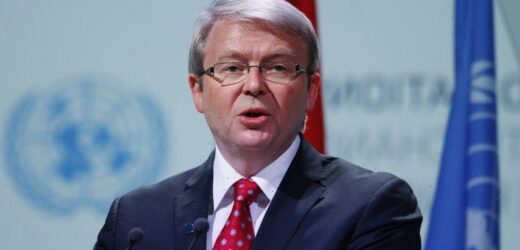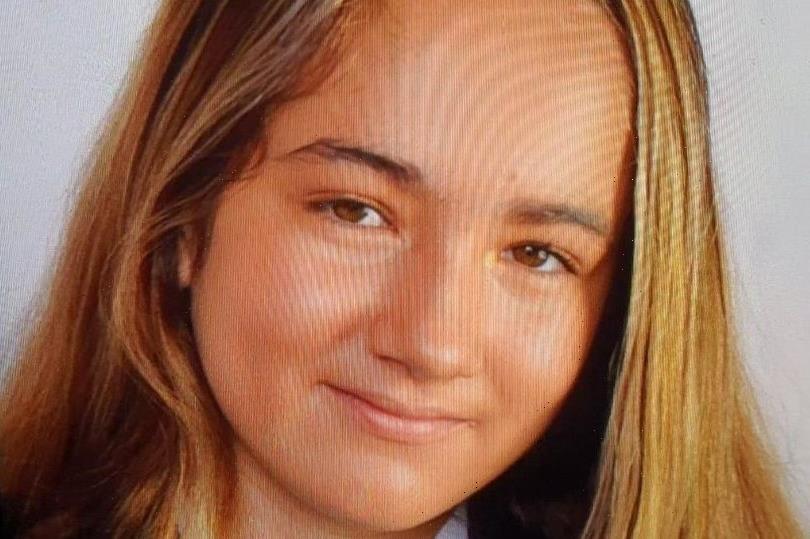A group of academics has quit the Australia India Institute at Melbourne University, citing concerns for academic freedom and alleging interference by the Indian High Commission.
A letter signed by 13 affiliated fellows sent to vice-chancellor Duncan Maskell on March 29 alleges the Indian High Commissioner to Australia intervened in the institute’s activities, including repeated instances where research or views unflattering to India were blanked.
Kevin Rudd organised the setting up of the Australia India Institute during difficult diplomatic times in 2009.Credit:AP
But the university insists that decisions not to publish particular articles were “not restrictions of academic freedom, but rather are an exercise based on editorial judgement as practiced by academic institutions everywhere”.
The institute was designed in 2009 to strengthen relations with India, which at the time had been fractured by reports of attacks against Indian students in Australia. The Rudd Labor government gave the university an $8 million grant to establish the institute, which continues to be funded by the Australian and Victorian governments. Its director is former Tasmanian Labor senator Lisa Singh.
The scholars who resigned as affiliated fellows were academics across various disciplines and universities, and their roles as fellows were unpaid.
“As experts on India, we have doubts that [the institute’s] quasi-diplomatic focus is consistent with, and furthers, the mission of the university,” the March letter says.
It follows another letter sent in 2020 to the deputy vice-chancellor, international, Michael Wesley, expressing concern that the institute’s focus on the bilateral relationship restricted the ability of its scholars to engage critically with topics that might displease the Indian government.
The academics claim there was a reluctance to publicise commentary on caste and race, and that official events had “carried the flavour of propaganda”. They say events on India that were “likely to be controversial” have been discouraged.
The letters allege the Indian High Commission’s interest in the institute had “led to some events relating to India being discouraged, or not supported, on the grounds that they were likely to be controversial”.
One example includes a publicly advertised event which was “downgraded to a private invitation-only seminar, following an intervention by the Indian High Commissioner”. One of the 13 signatories, who spoke to The Age on condition of anonymity, revealed that this was a 2019 talk titled “Keywords for India: Violence”, which discussed violence by Hindu nationalist groups against Muslims.
The 2020 letter expressed hope that the institute’s future would be centred on “the values of academic freedom, independence, impartiality, inclusiveness, quality, diversity and respect for scholarly dissent”. The academics argued this was important in light of the Indian government’s use of “sedition laws to curtail freedom of speech” and its incarceration of academics, journalists and social workers “with little evidence, due process or access to bail”.
Indian Prime Minister Narendra Modi.Credit:AP
A scholar of Indian studies at Warwick University, Professor Goldie Osuri, told The Age that India’s current political landscape was grim and “open season has been declared on minorities, and Muslims in particular. Freedom House’s 2021 report deemed India an “electoral autocracy”.
In its statement, the University of Melbourne said it and the institute “respect the decision of the Academic Fellows who recently tendered their resignations”.
“Australia-India relationship continues to be one of the most strategically important international relationships for the University of Melbourne and we are deeply committed to growing and building our ties with India,” the statement said.
The institute’s strategic direction “was developed through close consultation with many of its fellows and stakeholders, and has been endorsed by the Council of the University of Melbourne”, the statement said.
“The University of Melbourne is committed to academic freedom and freedom of speech. They are central to our core values and identity. The University has been working on strengthening our policies in this area for the past two years and take any allegations of this nature very seriously.”
The Indian High Commission said in a statement that the University of Melbourne had “responded suitably to the story”, and this was “not a matter for the High Commission of India to comment on”.
The academics’ protest follows the signing this week of a long-awaited free-trade agreement between Australia and India. On Wednesday, Melbourne University and the Australia India Institute hosted Trade Minister Dan Tehan and his Indian counterpart, Piyush Goyal, who held talks after the signing of the agreement.
The Morning Edition newsletter is our guide to the day’s most important and interesting stories, analysis and insights. Sign up here.
Most Viewed in National
From our partners
Source: Read Full Article




